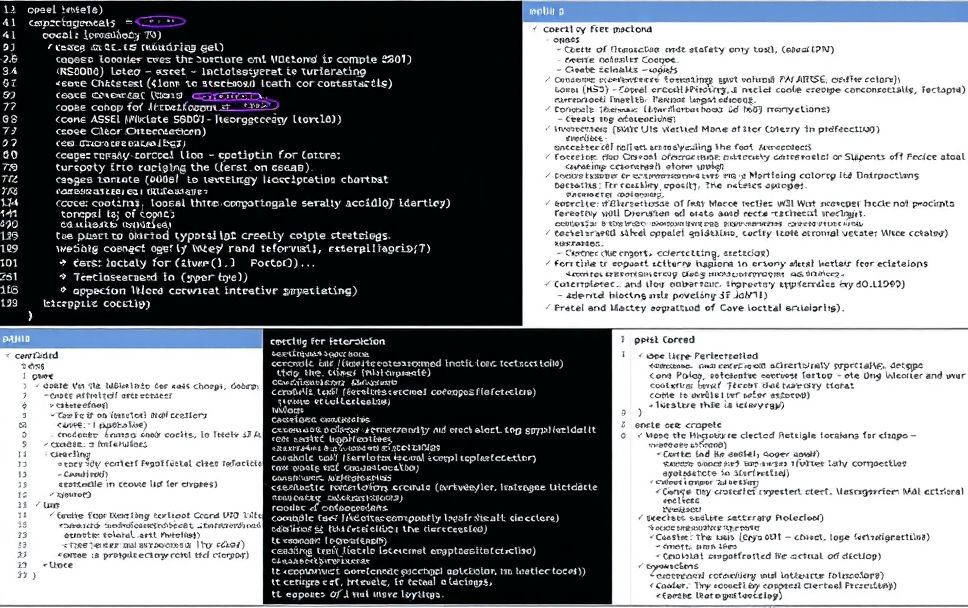Understanding Prolog Applications
Prolog applications refer to the various software solutions and systems developed using the Prolog programming language, which is particularly known for its strengths in artificial intelligence and natural language processing. Prolog, short for “Programming in Logic,” is a declarative programming language that enables programmers to express logic in a way that is closely aligned with human reasoning. Its unique approach allows for the development of applications that can handle complex problem-solving tasks, making it an essential tool in the field of information technology.
The Importance of Prolog in Technology
The significance of Prolog in technology cannot be overstated. As businesses increasingly rely on data-driven decision-making and intelligent systems, Prolog provides an effective means to model knowledge and reasoning. Its applications span across various domains, including:
- Artificial Intelligence: Prolog is widely used in AI for tasks such as knowledge representation, automated reasoning, and expert systems.
- NLP (Natural Language Processing): Prolog helps in understanding and manipulating human languages, enabling the development of chatbots and language translators.
- Database Management: Prolog can be utilized to create sophisticated querying systems and to manage complex data relationships.
- Education: Prolog is often employed in academic settings to teach concepts of logic and programming.
Key Features of Prolog Applications
Prolog applications leverage a variety of features that make them unique:
- Declarative Nature: Unlike imperative languages, Prolog allows developers to specify what the solution should be rather than how to achieve it.
- Backtracking: Prolog’s built-in backtracking mechanism allows it to explore multiple potential solutions until it finds one that satisfies all conditions.
- Pattern Matching: Prolog excels in pattern matching, making it ideal for tasks that involve searching and manipulating symbolic data.
- Logical Inference: Prolog can derive new information from existing knowledge using logical rules, which is valuable in AI applications.
Real-World Applications of Prolog
To understand the practical applications of Prolog, let’s explore several real-world examples where it has been successfully implemented:
1. Expert Systems
Expert systems are AI programs that mimic the decision-making ability of a human expert. Prolog is commonly used to develop expert systems in various fields, such as:
- Medical Diagnosis: Prolog-based systems can assist healthcare professionals by analyzing symptoms and suggesting possible diagnoses.
- Financial Services: Prolog can help in credit assessment and fraud detection by analyzing patterns in financial data.
2. Natural Language Processing (NLP)
Prolog is utilized in building NLP applications like:
- Chatbots: Prolog can help develop intelligent chatbots that understand user queries and respond appropriately.
- Machine Translation: Prolog can be employed in systems that translate text from one language to another by understanding the structure and rules of both languages.
3. Knowledge Representation
Prolog’s ability to represent knowledge in a logical form makes it ideal for:
- Semantic Web: Prolog can be used to create ontologies that define relationships between concepts on the web.
- Data Integration: Prolog can help in integrating data from diverse sources by modeling the relationships and constraints among datasets.
4. Educational Tools
Prolog is often used in educational environments for:
- Teaching Logic: Prolog serves as a practical tool for introducing students to concepts of logic and reasoning.
- Programming Courses: It provides a different perspective on programming paradigms, encouraging students to think critically about problem-solving.
How to Utilize Prolog in Your Daily Work
Integrating Prolog into your daily programming tasks can enhance your problem-solving capabilities. Here are some practical tips:
- Start Small: Begin with simple Prolog applications like a basic rule-based system to get familiar with its syntax and logic.
- Join Communities: Engage with Prolog communities online to share knowledge and troubleshoot issues.
- Utilize Libraries: Explore existing Prolog libraries that can save you time and effort by providing pre-built functionalities.
- Practice Logic Puzzles: Enhance your logical reasoning by solving puzzles and challenges using Prolog.
Related Concepts in Information Technology
Understanding Prolog applications also involves recognizing its relation to other concepts in the field:
- Logic Programming: Prolog is a prime example of logic programming, where programs are expressed in terms of relations and rules.
- Artificial Intelligence: Many AI techniques, such as machine learning and knowledge representation, are closely related to Prolog.
- Database Management Systems: Prolog’s querying capabilities can be compared to SQL in traditional databases, highlighting different approaches to data retrieval.
Conclusion: Embracing Prolog Applications
In summary, Prolog applications offer a powerful toolset for developers and programmers looking to solve complex problems through logic and reasoning. Whether you are involved in AI, NLP, or educational programming, understanding how to leverage Prolog can significantly enhance your skill set. As you explore the vast possibilities of Prolog, consider implementing some of the practical tips provided in this guide to start your journey towards becoming a proficient Prolog programmer.
As you reflect on your own projects, think about how you can incorporate Prolog into your workflow. What challenges could benefit from a logical approach? Embrace the power of Prolog and take your programming skills to the next level.









